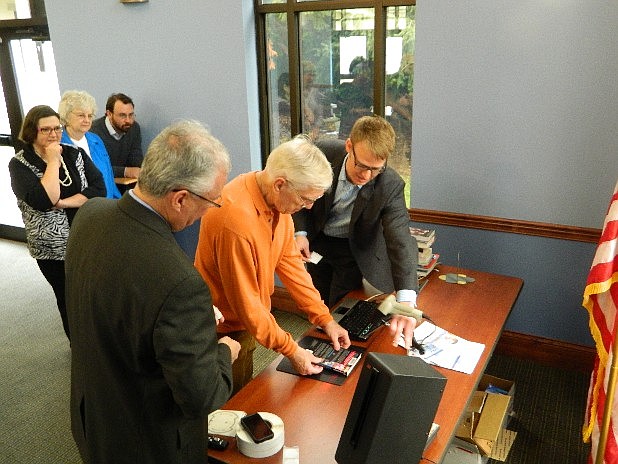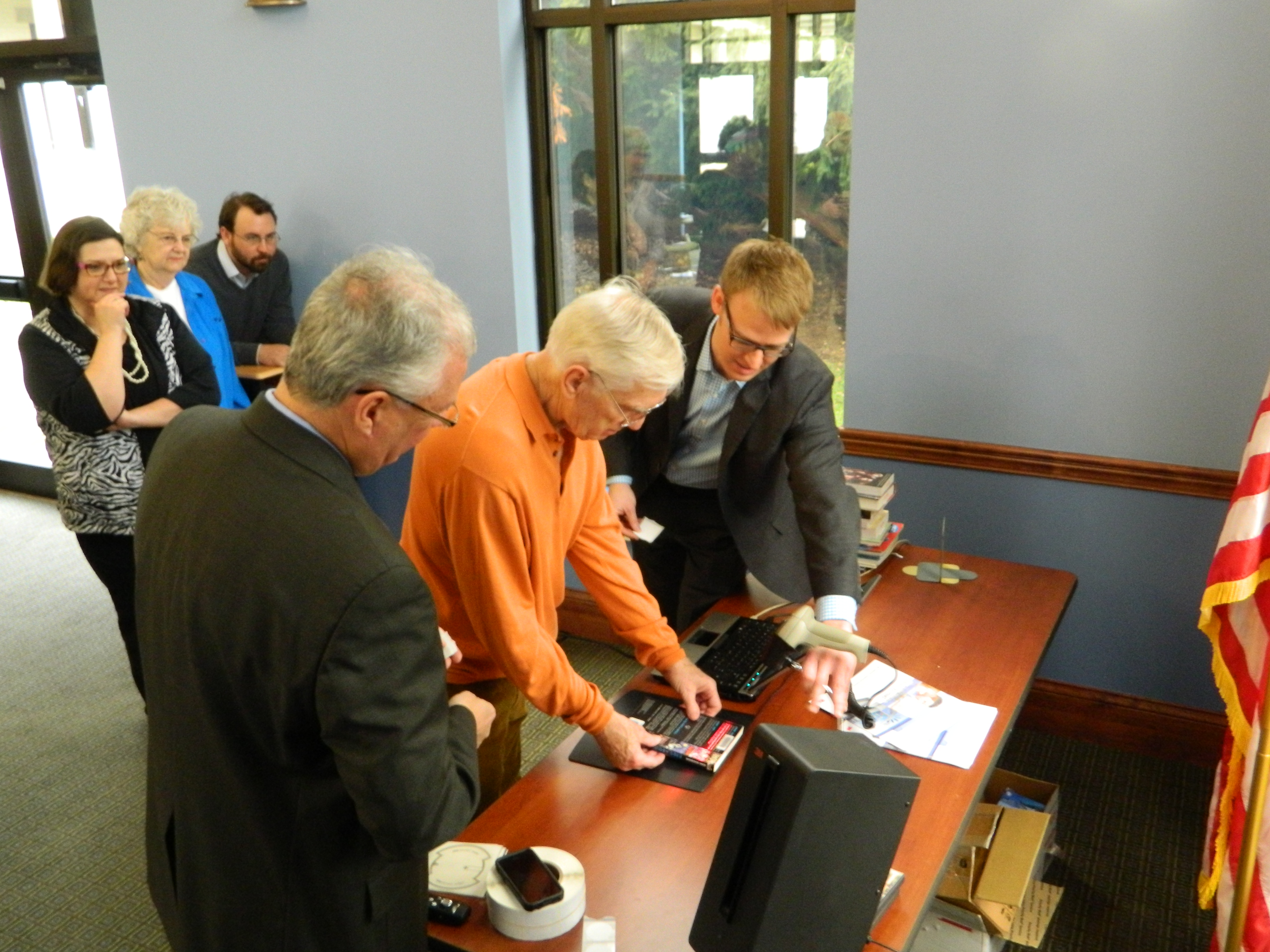CLEVELAND, Tenn. - The Cleveland Bradley County Public Library soon will consider bids for updating its collection management system with radio frequency identification technology to improve service, circulation speed and inventory accuracy.
"This looks to be the way of the future," library trustee Susan Lackey said.
In recent demonstration meetings, members of the library staff and board of trustees have met with vendors about how RFID technology - commonly used at "fast pass" gas pump payment stations and in shopping mall anti-theft systems - can enable patrons to check themselves out and give librarians more time to help them with other needs.
"It frees librarians to be librarians," said Jeff Allen, a representative of 3M, a worldwide technology products conglomerate that designs, engineers and manufactures RFID-based library systems.
The RFID library system is driven by wireless tags that are attached to books and other library materials, Allen said.
The tags contain information that now is contained on bar code stickers on those materials, which are scanned during circulation - checking out and checking in - and inventory procedures, he said.
"I tell people to think of it as an electronic bar code," he said.
No patron information is recorded on the RFID tags, said Andrew Hunt, director of the library.
For library patrons, the proposed adoption of the new technology would mean a number of self-checkout kiosks, he said.
Allen said the kiosks provide the ability to check out a handful of books at once instead of scanning one book at a time.
Reducing the time patrons spend checking out books and increasing the time that library staff can spend directly assisting patrons in other matters is a critical need for the library, Hunt said.
He said he hoped that at least 50 percent of the library's patrons will begin using the system once it has been installed later this year.
Allen said the kiosks have interactive interfaces similar to icon-based smartphone screens.
Programmable features include the ability to scan a library card from its image on a patron's smartphone, handle material holds, renew prompts and fine payment functions, he said.
The self-checkout kiosk screens also can be a promotional tool, said Matthew Bellamy, a marketing representative with 3M.
"It's the last impression patrons have before they walk out the door," he said. "It gives you another opportunity to talk to them."
Kiosk screens and checkout receipts can be customized to promote library events or make book recommendations based on what patrons check out, he said.
Hunt said bid proposals from vendors will be announced at the library board's April 1 meeting.
Paul Leach is based in Cleveland. Email him at paul.leach.press@gmail.com.

